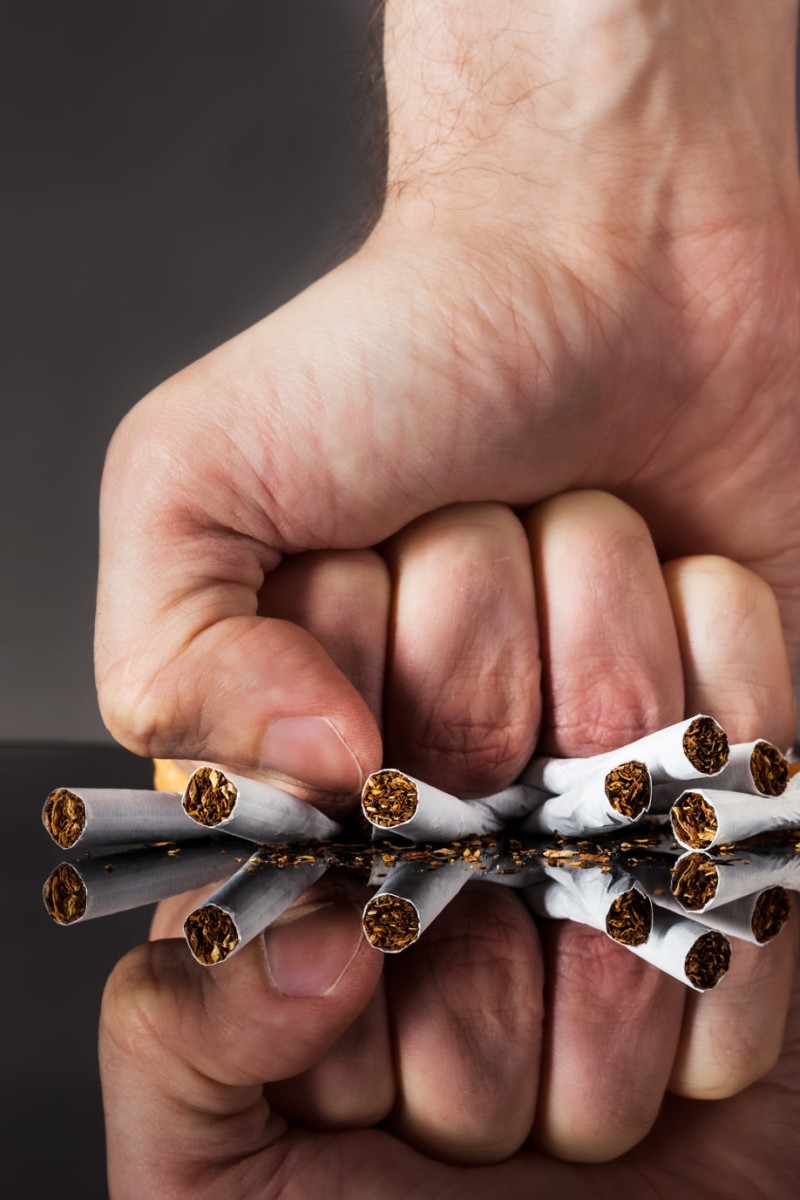
Asking for a Friend: Help! My dad is in a bad mood because he just quit smoking. What should I do?
Each week, we respond to a question from our readers and give advice and resources they can turn to.
 How would you support someone who has recently quit smoking? Photo: Shutterstock
How would you support someone who has recently quit smoking? Photo: ShutterstockNeed an answer to a personal question that you’ve never mustered the courage to ask? We’ve been there. Whether it is about school, family issues or social life, share your thoughts with us. If you have a question you’d like answered (about anything at all), please fill out this Google Form. Don’t worry – you will remain anonymous!
Dear Friend,
My dad recently quit smoking. Since then, he has been lashing out at everyone at home. While my mum and I want to support him, his behaviour is really affecting us. I need some advice on how to deal with this and convince him to see someone who can help.
Sincerely, Helpless
Dear Helpless,
It appears that your father is dealing with emotional and behavioural changes because he quit smoking. You might feel powerless and wonder how to help him, but you’re not alone.
Nicotine is very addictive. When a person stops smoking, their body often goes through nicotine withdrawal. These withdrawal symptoms can be toughest in the first week after quitting, peaking in the first three days. The frequency and intensity of these symptoms usually decrease after the first month.
Common withdrawal symptoms include a strong desire for nicotine, which can be overwhelming and hard to ignore. People might also be angry, irritable and frustrated as their bodies adjust to the lack of nicotine.
This change can lead to a low mood and increased anxiety, making it difficult to concentrate on daily activities. Physical symptoms such as restlessness, insomnia, headaches, and coughing may also arise.
My mum deleted all my phone games, and now I feel upset when I see her. What should I do?
Here are some ways to help your father on his journey to quit smoking:
– Reassure him and let him know that nicotine withdrawal symptoms will get better over time. Remind him that these feelings are temporary.
– Make sure he knows that he has you and your mum as a support network. You can be his strongest ally by offering encouragement. Encourage him to share what he’s going through. Remember to maintain a positive and accepting attitude towards his struggles and efforts to quit smoking.
– Help him avoid triggers and encourage him to stay away from alcohol and reduce his caffeine intake by limiting coffee, cola, and tea, as they may make his cravings worse. If the urges hit him, suggest sugarless gum or hard candy instead of smoking.
– Help create calm moments and encourage him to set aside some quiet time every day to do activities that help him relax, such as reading, writing, or meditating.
– Motivate your father to be physically active by taking leisurely walks or playing sports. You could plan a family activity and have some fun together.
– Make sure he keeps in touch with his friends. It can be helpful to maintain social connections with people who are supportive of his journey to quit smoking.
– If your dad’s symptoms become really tough to manage, it’s important to talk to a healthcare professional. For more information, contact the Integrated Smoking Cessation Hotline of the Department of Health at 1833 183.
Remember, quitting smoking is a journey and every step counts! Your dad can overcome these challenges and improve his health with your support and encouragement. In the meantime, try to spend more time with your friends or do activities on your own. Stay positive, and keep cheering him on!
Hope that helps, Friend of a Friend
This question was answered by clinical psychologists from the Department of Health under Shall We Talk, a mental health initiative launched with the Advisory Committee on Mental Health.